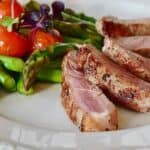The Role of Supplements and Vitamins on the Keto Diet
The ketogenic (keto) diet has gained popularity in recent years as a low-carb, high-fat diet that can help with weight loss, improved mental clarity, and increased energy levels. However, as with any diet, it’s essential to ensure that you’re getting all the necessary nutrients to maintain optimal health. In this article, we’ll explore the role of supplements and vitamins on the keto diet, addressing common questions and concerns to help you make informed decisions about your nutritional needs.
Why Might You Need Supplements on the Keto Diet?
While the keto diet can provide numerous health benefits, it can also lead to some nutrient deficiencies due to the restricted intake of certain food groups, such as fruits, vegetables, and whole grains. These deficiencies can result in fatigue, muscle cramps, and other health issues. To prevent these problems, it’s essential to understand which supplements and vitamins can help support your overall health while following the keto diet.
Essential Supplements and Vitamins for the Keto Diet
Here are some of the most important supplements and vitamins to consider incorporating into your keto diet to ensure optimal health:
Magnesium
Magnesium is an essential mineral that plays a crucial role in many bodily functions, including energy production, muscle and nerve function, and blood sugar regulation. The keto diet can lead to a magnesium deficiency due to the limited intake of magnesium-rich foods like fruits, vegetables, and whole grains.
To maintain adequate magnesium levels, consider taking a magnesium supplement or incorporating magnesium-rich keto-friendly foods into your diet, such as spinach, pumpkin seeds, and almonds. The recommended daily intake of magnesium for adults is 310-420 mg, depending on age and gender[^1^].
[^1^]: [National Institutes of Health – Magnesium](https://ods.od.nih.gov/factsheets/Magnesium-HealthProfessional/)
Potassium
Potassium is another essential mineral that helps regulate fluid balance, muscle contractions, and nerve signals. A potassium deficiency can lead to muscle cramps, fatigue, and weakness. Since many potassium-rich foods like bananas and potatoes are high in carbs, they’re typically avoided on the keto diet.
To ensure you’re getting enough potassium, consider taking a potassium supplement or incorporating keto-friendly, potassium-rich foods like avocados, spinach, and salmon into your diet. The recommended daily intake of potassium for adults is 2,500-3,000 mg[^2^].
[^2^]: [National Institutes of Health – Potassium](https://ods.od.nih.gov/factsheets/Potassium-HealthProfessional/)
Sodium
Sodium is an essential electrolyte that helps maintain fluid balance and supports proper muscle and nerve function. When starting the keto diet, your body may lose more sodium due to the diuretic effect of cutting carbs. This can lead to symptoms like dizziness, fatigue, and headaches, commonly referred to as the “keto flu.”
To prevent sodium deficiency, consider adding extra salt to your meals or drinking broth. The recommended daily intake of sodium for adults is 1,500-2,300 mg, depending on age and health status[^3^].
[^3^]: [National Institutes of Health – Sodium](https://ods.od.nih.gov/factsheets/Sodium-HealthProfessional/)
Vitamin D
Vitamin D is essential for bone health, immune function, and mood regulation. Since vitamin D is primarily obtained through sun exposure, many people are deficient, regardless of their diet. However, the keto diet may further limit vitamin D intake due to the restricted consumption of vitamin D-rich foods like fortified dairy products and certain fish.
To ensure adequate vitamin D levels, consider taking a vitamin D supplement or spending more time outdoors in the sun. The recommended daily intake of vitamin D for adults is 600-800 IU, depending on age[^4^].
[^4^]: [National Institutes of Health – Vitamin D](https://ods.od.nih.gov/factsheets/VitaminD-HealthProfessional/)
B Vitamins
B vitamins, including B12, B6, and folic acid, are essential for energy production, brain function, and red blood cell formation. Since many B vitamin-rich foods like whole grains and legumes are restricted on the keto diet, it’s essential to ensure you’re getting enough of these nutrients.
To maintain adequate B vitamin levels, consider taking a B-complex supplement or incorporating B vitamin-rich keto-friendly foods like eggs, meat, and dairy products into your diet. The recommended daily intake of B vitamins varies depending on the specific vitamin and individual factors[^5^].
[^5^]: [National Institutes of Health – B Vitamins](https://ods.od.nih.gov/factsheets/list-VitaminsMinerals/)
Omega-3 Fatty Acids
Omega-3 fatty acids are essential for heart health, brain function, and reducing inflammation. While the keto diet is high in fat, it’s crucial to ensure you’re getting enough omega-3s, as they’re typically found in foods like fatty fish, flaxseeds, and walnuts, which may not be consumed regularly on the keto diet.
To maintain adequate omega-3 levels, consider taking a fish oil or algae-based supplement or incorporating omega-3-rich keto-friendly foods like salmon, sardines, and chia seeds into your diet. The recommended daily intake of omega-3 fatty acids for adults is 250-500 mg of EPA and DHA[^6^].
[^6^]: [National Institutes of Health – Omega-3 Fatty Acids](https://ods.od.nih.gov/factsheets/Omega3FattyAcids-HealthProfessional/)
Conclusion
While the keto diet can provide numerous health benefits, it’s essential to be aware of potential nutrient deficiencies and take steps to ensure you’re getting all the necessary vitamins and minerals. By incorporating the supplements and vitamins discussed in this article, you can support your overall health and well-being while following the keto diet. Remember to consult with a healthcare professional before starting any new supplement regimen, especially if you have any pre-existing health conditions or concerns.




